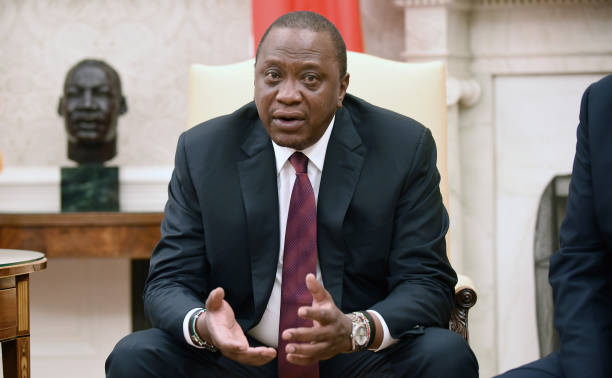Kenya’s Court of Appeal has upheld a previous ruling that affirmed that controversial changes to the country’s constitution championed by President Uhuru Kenyatta were illegal.
In a in a televised hearing on Friday, court president Daniel Musinga said; ‘The president does not have authority under the constitution to initiate changes to the constitution’.
Africa Today News, New York reports that Kenyatta had argued that the initiative would make politics more inclusive and help end repeated cycles of election violence in the East African nation, an issue that has divided the political elite.
‘The president does not have authority under the constitution to initiate changes to the constitution,’ Court president Daniel Musinga stressed.
‘A constitutional amendment can only be initiated by parliament… or through a popular initiative,‘ he said, also declaring that Kenyatta could be sued in a civil court for launching the process.
Read Also: U.S., Kenya Trade Pact Won’t Affect AfCFTA – Kenyatta
The proposed reforms came about following a rapprochement between Kenyatta and his erstwhile opponent Raila Odinga and a famous handshake between the two men after post-election fighting in 2017 left dozens of people dead.
The so-called Building Bridges Initiative (BBI) notably aimed to restructure the current winner-take-all electoral system, by expanding the executive and parliament to more evenly divide the spoils of victory.
But it was seen by critics as a way to enable Kenyatta — who is barred from running for president again in the 9 August vote — to remain in power by creating the post of prime minister.
Friday’s ruling allows the electoral process to follow its planned timetable — subject to any appeal to the Supreme Court, the country’s highest.
But it means the nation’s key political leaders may have to rethink their strategies to build alliances before the vote, analysts said.
With its diverse population and large ethnic voting blocs, Kenya has long suffered politically motivated communal violence around election time, notably after a 2007 poll when more than 1,100 people died.
The proposed amendments to the 2010 constitution were approved by parliament in May and were then due to be put to a referendum.
But just two days later, the Nairobi High Court ruled they were illegal as the president did not have the right to initiate the process.
Kenyatta had criticised the decision as “an attempt to stop the will of the people” and his government appealed.
Supporters of the initiative argued it would improve fairness in the electoral system and help curb violence, but critics warned it could undermine the country’s democratic institutions.
The reforms called for the creation of the posts of prime minister and two deputies, as well as an official opposition leader, and the expansion of parliament with 70 new constituencies.
Kenyatta’s pursuit of the reforms with Odinga, a four-time presidential contender, has spurred speculation that he may seek to become prime minister in a power-sharing arrangement since he cannot run for president again after two terms.
AFRICA TODAY NEWS, NEW YORK
